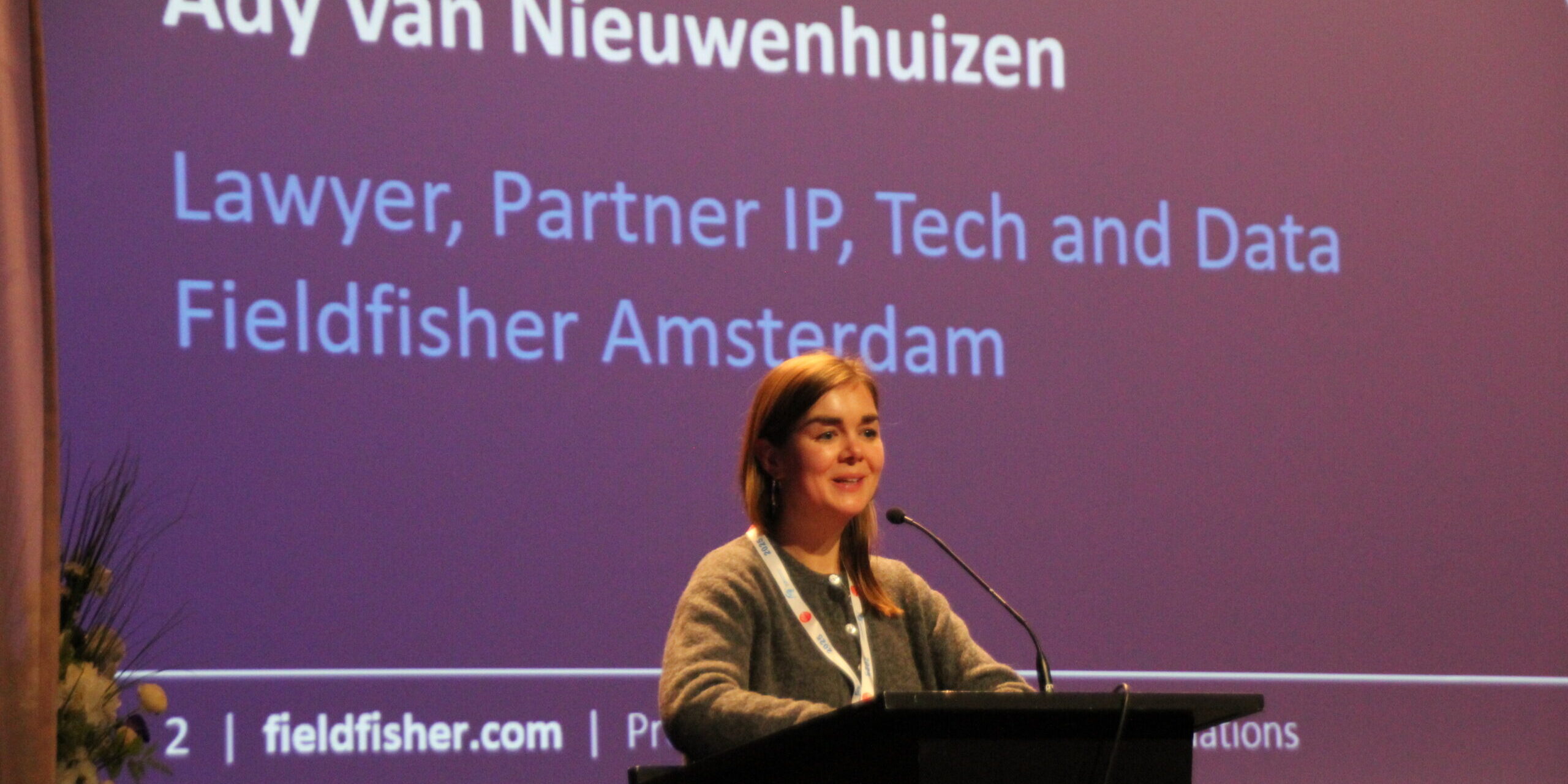The Black Box Problem: Ady Van Nieuwenhuizen on Legal Perspectives of AI Governance
By Shrika Gadepalli
Photography by Anna Plunkett
Renowned Intellectual Property (IP) and privacy lawyer Ady van Nieuwenhuizen honoured GA6 (Legal) with her presence, offering an insightful discourse on the fundamental principles of accountability (ensuring stakeholder responsibility), transparency (providing users with a clear understanding of system operations), and oversight (facilitating independent review and regulation) in the governance of Artificial Intelligence (AI) systems. She tackled the profound question of whether absolute AI trustworthiness is an attainable ideal with remarkable dexterity.
Ms. Nieuwenhuizen’s esteemed expertise illuminated the discussion, particularly on AI’s inherent opacity—often linked to complex “black boxes”—where proprietary algorithms, developed by corporations with competitive imperatives, resist scrutiny. Expanding upon the three foundational pillars introduced, she proposed a meticulously curated suite of solutions, including the integration of explainable artificial intelligence (XAI) to provide transparent justifications, open-sourcing for collective examination, rigorous documentation, and the engagement of third-party fact-checkers alongside an ethics board.
MUNITY was privileged to further engage with Ms. Nieuwenhuizen in an exclusive interview, during which the discourse pivoted to the most pressing risks associated with AI: bias, discrimination, and misinformation. The conversation commenced with exploring the responsibilities multinational corporations—entities wielding significant economic and positional power—must assume in ensuring ethical AI deployment. A critical dilemma emerged: balancing the imperative for AI transparency against the risks of trade secret exposure. In response, she underscored the necessity of robust enforcement mechanisms, corporate compliance with regulatory surveillance, and a measured reliance on industry developers to uphold ethical standards.
Moreover, the sufficiency of existing regulatory frameworks in AI governance was brought into question, with Ms. Nieuwenhuizen emphasizing the near-impossibility of achieving comprehensive international cooperation. However, the General Data Protection Regulation (GDPR) was acknowledged as a seminal step in this direction, offering a framework that incentivizes—or, where necessary, compels—corporate adherence through stringent penalties, financial sanctions, and reputational risks.
Ms. Nieuwenhuizen astutely highlighted the legal system’s inherent challenge in keeping pace with AI’s rapid evolution, reinforcing the imperative for organizations to proactively foster transparency and accountability. She pointed to a crucial gap: the limited expertise among policymakers, regulators, and industry leaders in effectively overseeing AI development. In conclusion, she issued a call to action, urging the public—and each of us as individuals—to critically examine the ‘what,’ ‘why,’ and ‘how’ of the measures organizations implement to ensure the ethical stewardship of AI systems.








